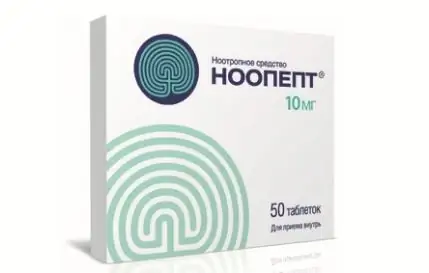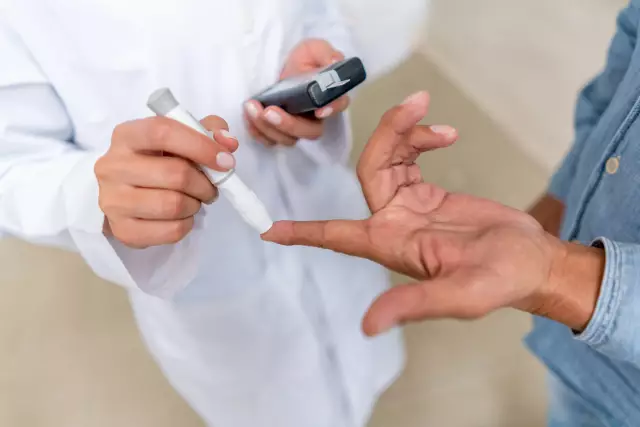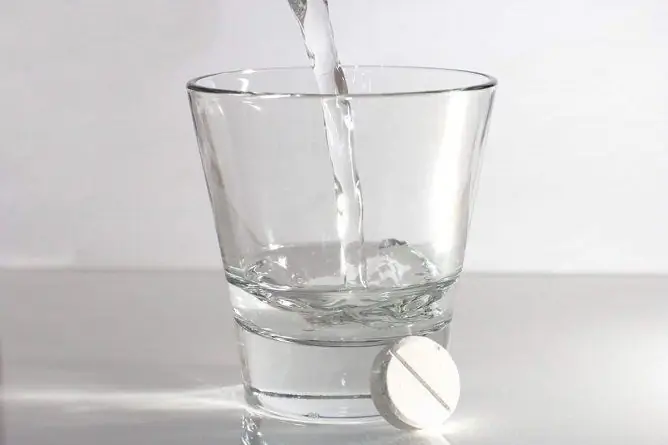- Author Rachel Wainwright wainwright@abchealthonline.com.
- Public 2023-12-15 07:39.
- Last modified 2025-11-02 20:14.
Analogues of Noopept - are there any drugs with a similar effect?
Many of us have probably noticed more than once that from mental stress at some point the brain seems to "overheat" and the "assimilation" of information is greatly slowed down. This problem is especially relevant for people over fifty years of age. “I’m already thinking badly,” “my head will burst now,” “memory seems to be shutting down” - this is what I want to say at the moment of information overload.

Modern pharmacology has long proposed a solution to such problems - nootropics. And although you can find a variety of drugs on the market - nootropics, not all of them are equally effective and many of them are obsolete. This article is devoted to a new generation drug: an effective neuropeptide - an innovative drug Noopept, its use and doctors' reviews about its possible analogues.
NOOPEPT is a development of Russian scientists who have made innovations in the field of nootropic drugs. Noopept helps the brain to adapt to many adverse environmental factors that affect memory and attention and other cognitive functions.
The action of Noopept is based on the formation of the active compound cycloprolylglycine, which is called "memory peptide". It is necessary to use Noopept just to restore memory and attention. The use of Noopept is also justified for the treatment of various conditions with signs of decreased intellectual productivity. Like any drug, Noopept has a number of indirect analogs with a similar, but not the same mechanism of action and less obvious effectiveness.

Noopept analogues: Ginkoum
On the net you can find comparisons of Noopept with the drug Ginkoum. And although Ginkoum is also referred to as nootropics, it is not an analogue of Noopept. It is not entirely correct to make an explicit comparison between them. Ginkoum is an angioprotective herbal remedy used for disorders of cerebral circulation, while Noopept, in turn, belongs to the group of neuropeptides. This is not just an advantage, but a new step in the field of nootropics. The active substance of Noopept acts in two directions: it improves the condition of nerve cells and acts on all 3 stages of memory: memorization, storage and reproduction of information. This allows you to significantly improve your memory, and therefore, to be a full-fledged person at work and in the family. This is especially important for the elderly, because Noopept allows you to slow down the process of extinction of brain cells,and reduce the risk of senile dementia (senile dementia). An important advantage of this drug is the ease of use of Noopept: only 2 tablets per day, the minimum course is 1 month. Ginkoum has an inconvenient frequency of administration: 2 capsules 3-4 times a day, as well as an indistinct course of administration. It should also be noted that compared to its analogues, Noopept has a low number of side effects. Ginkoum, in turn, can cause allergic reactions (redness, skin swelling, itching), dyspepsia, headache, decreased blood clotting, hearing impairment, dizziness. It should also be noted that compared to its analogues, Noopept has a low number of side effects. Ginkoum, in turn, can cause allergic reactions (redness, skin swelling, itching), dyspepsia, headache, decreased blood clotting, hearing impairment, dizziness. It should also be noted that compared to its analogues, Noopept has a low number of side effects. Ginkoum, in turn, can cause allergic reactions (redness, skin swelling, itching), dyspepsia, headache, decreased blood clotting, hearing impairment, dizziness.
Noopept analogues: Piracetam
An analogue of Noopept is often called Piracetam, however, Noopept is twice as safe as this drug. Unlike Noopept, Piracetam can cause dyspeptic disorders, abdominal pain, nervousness, agitation, irritability, anxiety, sleep disorders, dizziness, headache, tremors, and in some cases, weakness, drowsiness.
Thus, we can conclude that Noopept has no direct analogues either in terms of the formula, or in terms of contraindications, or in terms of the number of side effects. One way or another, drugs of similar action are inferior to Noopept in terms of safety and effectiveness.

Noopept: reviews of doctors
What doctors say about Noopept:
Doctor of Medical Sciences, Professor A. V. Amelin and Candidate of Medical Sciences A. Yu. Ilyukhina in their study "Noopept in the treatment of moderate cognitive disorders in patients with ischemic stroke" note that Noopept in a daily dose of 20 mg, used for 2 months, improves cognitive function in patients with ischemic stroke. The results of domestic studies of the efficacy and safety of Noopept obtained to date make it possible to use it in the complex treatment of moderate dyscirculatory cognitive disorders.
MMOdinak, SVVorobyov, V. Yu. Lobzin, A. Yu. Emelin, AV Kudyashev in their study "Application of Noopept in patients with mild cognitive impairment of post-traumatic genesis" note that the study showed sufficient clinical efficacy of Noopept, and its reception is well tolerated. The drug can be recommended for use in patients who have suffered a concussion or contusion of the brain of mild degree with the presence of cognitive impairment in the residual period.
Thus, it is safe to say that Noopept today has no direct analogues. Other nootropic drugs cannot compete with Noopept either in safety or in effectiveness. The effectiveness of Noopept is also confirmed by scientific studies of a dozen experts and doctors' reviews. Noopept is available without a prescription.
Found a mistake in the text? Select it and press Ctrl + Enter.






